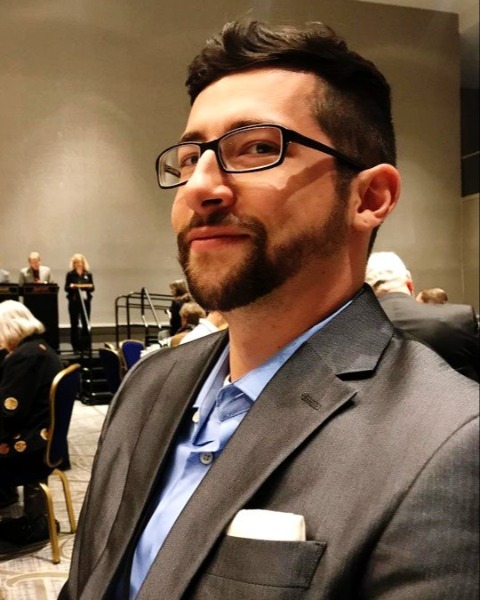Health Sciences
Neighborhood Environments and Cognitive Health: Advancements in Concepts and Methods
-
AR
Andrea Rosso, MPH, PhD (she/her/hers)
Associate Professor
Epidemiology
University of Pittsburgh
Pittsburgh, Pennsylvania, United States -

Jana Hirsch, MES, PhD (she/they)
Associate Research Professor
Urban Health Collaborative and Department of Epidemiology and Biostatistics
Drexel University Dornsife School of Public Health
Philadelphia, Pennsylvania, United States -

Jessica Finlay, PhD (she/her/hers)
Assistant Professor
Department of Geography and Institute of Behavioral Science
University of Colorado Boulder
Boulder, Colorado, United States -
.jpg)
Greta Jianjia Cheng, MSW, MPH (she/her/hers)
PhD Candidate
Department of Epidemiology
University of Pittsburgh
Pittsburgh, Pennsylvania, United States -

Michael Desjardins, PhD, MA (he/him/his)
Assistant Research Professor
Epidemiology
Johns Hopkins University
Baltimore, Maryland, United States -

Kyle Moored, PhD, MS (he/him/his)
Assistant Research Professor
Mental Health
Johns Hopkins Bloomberg School of Public Health
Baltimore, Maryland, United States -

Erica Fan, MPH (she/her/hers)
Student
Department of Epidemiology
University of Pittsburgh School of Public Health
Pittsburgh, Pennsylvania, United States
Chair(s)
Discussant(s)
Individual Symposium Abstract First Author(s)
Evidence for the importance of residential neighborhood environments for cognitive health in older adults has grown substantially in the past decade. It is important to understand details of these relations, including timing and mechanisms, as interventions at the neighborhood level could have broad public health importance. Here, we present a series of five talks from four studies that aim to advance the field of environmental influences on cognitive health through several conceptual and methodological advancements: inclusion of lifecourse exposures (Cheng, Finlay), consideration of the role of race as a social construct and a modifier of neighborhood exposures (Cheng), incorporation of blood-based biomarkers of Alzheimer’s disease as an outcome (Fan), consideration of spatial and historical context in interpreting results (Moored, Desjardins), use of qualitative interviews to gain insight from people’s lived experiences (Finlay), and use of novel exposures such as cognability (Finlay) and blue space (Moored, Desjardins) as well as upstream factors indicative of structural disadvantage (Cheng, Fan, Desjardin). Together, these talks will challenge the audience to consider the complex ways in which neighborhoods could influence cognitive outcomes and how to best approach analysis and interpretation of such data. Advancing our conceptual understanding of the influence of neighborhoods on cognitive aging over the lifecourse will allow for informed public health interventions. A discussion of next steps will be led by Jana Hirsch.
Environmental Gerontology Interest Group Sponsored Symposium
Learning Objectives:
- After attending this session, participants will be able to identify neighborhood environmental characteristics that are important for cognitive health.
- After attending this session, participants will be able to describe how spatial and historical context can influence analyses of neighborhood environments.
- After attending this session, participants will be able to discuss the lifecourse perspective in relation to neighborhood environments and cognitive aging.
Presentations:
-
12:00 PM - 1:30 PM PSTLife Course "Cognability": Investigating Neighborhoods and Cognitive Health Risks Across the Lifespan
Individual Symposium Abstract First Author: Jessica M. Finlay, PhD (she/her/hers) – University of Colorado Boulder
-
12:00 PM - 1:30 PM PSTMidlife Neighborhood Socioeconomic Status and Cognitive Function in Late Life: Differences by Race
Individual Symposium Abstract First Author: Greta Jianjia Cheng, MSW, MPH (she/her/hers) – University of Pittsburgh
-
12:00 PM - 1:30 PM PSTNeighborhood Proximity and Spatial Spillover: Impact on Older Adult Health
Individual Symposium Abstract First Author: Michael R. Desjardins, PhD, MA (he/him/his) – Johns Hopkins University
-
12:00 PM - 1:30 PM PSTNeighborhood Blue Spaces and Risk of Incident Dementia: Importance of Spatial and Historical Context
Individual Symposium Abstract First Author: Kyle D. Moored, PhD, MS (he/him/his) – Johns Hopkins Bloomberg School of Public Health
-
12:00 PM - 1:30 PM PSTNeighborhood Disadvantage and the Association of Plasma Biomarkers With Cognition in a Cohort of Diverse Adults
Individual Symposium Abstract First Author: Erica K. Fan, MPH (she/her/hers) – University of Pittsburgh School of Public Health
